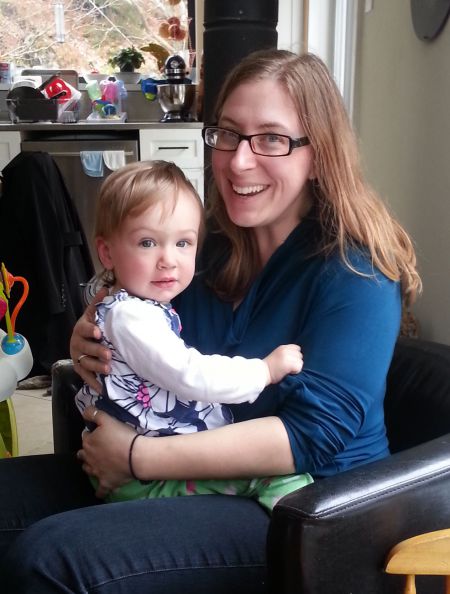There was a point in history when a mom breastfeeding her child might have scandalized the neighbourhood. These days, in certain circles, you probably stand more chance of a sideways glance for whipping out a formula bottle.
Our collective understanding of motherhood has come a long way in a couple generations. Or has it? Society's poster mother might have moved from formula to breastmilk and from Pampers to cloth diapers, but she's as orthodox as ever, placing idealized expectations on some of society’s most overworked citizens. What's a new mom to do?
Enter the Halifax Motherhood Collective, a recently formed group that hopes to eschew all the do's and don'ts that normally engulf new moms, and start a public discussion about how to make being a mother better.
"The degree of judgement around breastfeeding or not breastfeeding that we found when we became parents was something that really bothered us," says collective co-founder Susanne Marshall. "We were amazed at the way that an entire support system was so ready and willing to drop people who couldn't breastfeed or couldn't exclusively breastfeed."
Breastfeeding is a lightning rod issue, but the collective hopes to address much more. "We're interested in challenging all sorts of opinions that cluster around motherhood," says Marshall.
On Saturday May 10 (the day before Mothers' Day), the collective is hosting its first official event: Re-imagining Motherhood, a public discussion about the state of motherhood today.
"We decided now is the time," says Marshall. "Everyone is thinking about what it means to be a mother. Hallmark is making billions. Let's talk about this."
One of the big themes Marshall hopes will be addressed is the social isolation of new parents. "We structure our lives around independence," says Marshall, something that leaves many new parents without access to the collective resources and knowledge of the wider community. "The cliché 'it takes a village' is all very well when it reminds you of medieval England," says Marshall, "but what does it mean to transpose that onto Halifax in 2014? In our atomized, hyper-independent lives, how do we think of kids as needing a kind of social infrastructure?"
"If we continually need children, it's not just for entertainment value," says Marshall. "It's not just because we have selfishly chosen to have them. There's a larger social imperative at work."
A lot of it boils down to time and how we collectively value it. "Time is a problem in a world where it is expected that you will work at least 40 hours a week and manage to get everything else done," says Marshall, when "everthing else" may mean caring for children or elderly relatives.
"That problem of how to account for caring labour, that's been a feminist issue for a long time," says Marshall. "How do you account for work that is not paid in a capitalist culture? It seems to me that no one has come up with a great solution for that one yet."
The list of issues related to motherhood is long: the competing camps of 'ideal motherhood' (such as stay-at-home vs working mom, breastfeeding vs formula-feeding), the problem of unpaid work, the ideal of the "superwoman", the very different challenges of single and co-parenting, and the increasingly prevalent attitude that children are a choice (and therefore caring for them is on par with a hobby, as opposed to a social responsibility.)
"Our hope from this initial conversation is that we'll start to see what other people think and what real concrete actions we can take," says Marshall. "That is our intention, not only to talk about things but also to think about how we can influence government policy, or more effectively communicate with the public."
Re-imagining Motherhood is happening Saturday, May 10th, from 2pm to 4pm at the Bloomfield Community Centre Multipurpose Room. Mothers and their allies are welcome. Presentations and discussion will be followed by informal discussion and snacks. Childcare will be provided on site.
For more information, check here.



